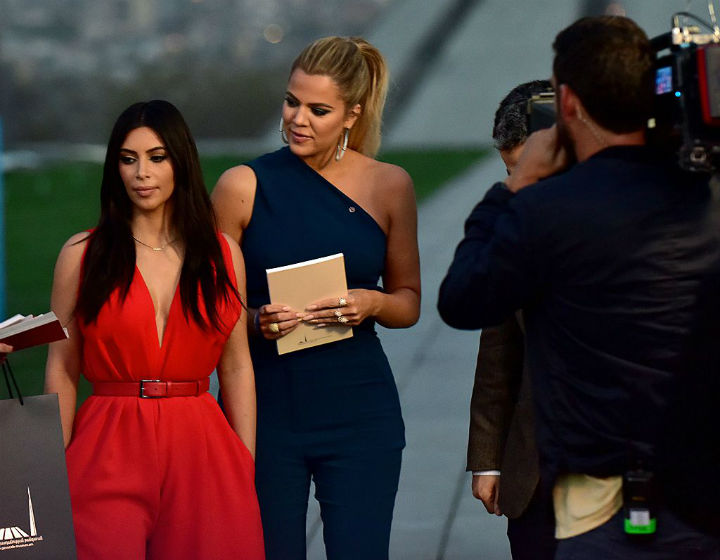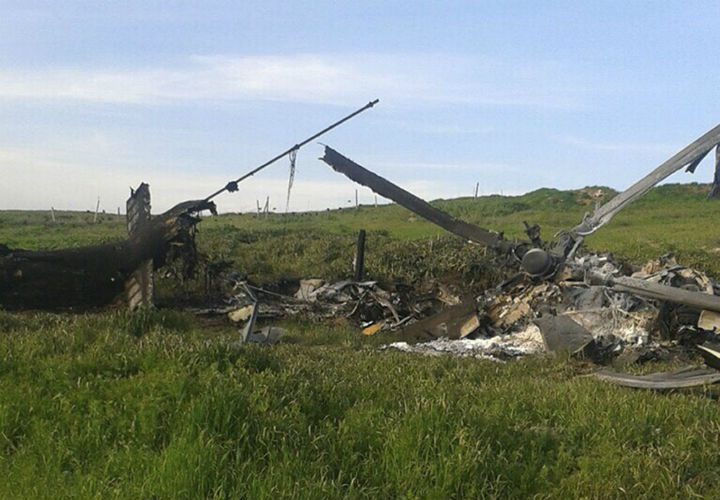Did Kim and Khloe Kardashians’ prayer tweets prevent a war from breaking out between Armenia and Azerbaijan? Of course not.

But with a massive following on Twitter and Instagram, the reality star sisters brought the flare-up in violence in the small breakaway republic of Nagorno-Karabakh to a combined audience of nearly 175 million people.
Kim reached a further 28 million people with a similar message on Facebook.
When it comes to global conflicts, such as the civil war in Syria and a still-volatile situation in eastern Ukraine, Nagorno-Karabakh isn’t one that gets much attention. But, it’s been simmering for years.
READ MORE: Armenia marks centennial of 1915 massacre
Between the start of hostilities Saturday and a ceasefire Tuesday, the mountainous enclave inside Azerbaijan’s borders was the scene of intense fighting and shelling between the Azerbaijani military and ethnic-Armenian separatist forces, backed by the Armenian military.
At least 64 people died in the skirmishes before both sides returned to a tenuous truce.
It was some of the worst violence since 1994, when an international ceasefire deal ended a war over the region between neighbouring former Soviet republics Azerbaijan and Armenia.
Nagorno-Karabakh isn’t a large area, just 4,400 square kilometres. Nowadays, the autonomous region is home to about 146,000 people — the majority of whom are ethnic Armenian.

Get breaking National news
After the break-up of the Soviet Union, tensions between the ethnic Armenians and Azeris reached a boiling point when the Nagorno-Karabakh parliament voted for unification with Armenia.
As many as 30,000 people are estimated to have died between the start of the war in 1991 and the ceasefire agreement in 1994, while one million others were displaced, according to BBC.
Both Azerbaijan and Armenia claim the actions of the other sparked the clashes.
“Anger and frustration are building in Azerbaijan that years of talks have failed to bring Nagorno-Karabakh under its control. The country has used revenues from exports of crude oil to build up its military, leading some Azeris to believe that if there was another war, they could win it,” Reuters reported.
So what does it all matter to the Kardashians?
With tweets and Instagram posts that could sometimes be called self-promotional or vapid, one might wonder why the Kardashian sisters are weighing in on geopolitics.
The Kardashian sisters’ late father Robert Kardashian, one of O.J. Simpson’s defence attorneys, was a third-generation Armenian-American.
READ MORE: Kim Kardashian, Emily Ratajkowski post topless selfie, set Internet on fire
As such, Kim and Khloe have lent their voices (and visages) to Armenian causes in the past, such as Kim calling on U.S. President Barack Obama to recognize the massacre of 1.5 million Armenians at the hands of Ottoman Turks as a genocide — something that can drive a wedge into relations with Turkey. (Canada formally recognized the Armenian genocide in 2004.)
Kim described growing up with Armenian heritage in an essay she wrote for TIME last year, in which she admitted she knew nothing about the genocide before travelling — along with Khloe, husband Kanye West and daughter North West — to the homeland of her great-great-grandparents. The Kardashian-West clan even met with Armenian Prime Minister Hovik Abrahamyan.
Kim and Khloe’s social media posts about Armenia garnered more than 870,000 interactions and, in some cases, spurred a debate between supporters on either side.
Obviously, it’s not just Kim and Khloe Kardashian who are concerned about the precarious situation.
The Canadian government called on both sides to “show restraint” and “immediately return to a true ceasefire.”
Conservative Foreign Affairs critic Tony Clement and deputy critic Peter Kent said they “strongly encourage Armenian and Azerbaijani forces to end this violence.”
Clement and Kent also referenced reports the clashes broke out after “Azerbaijan initiated these attacks” and called on the Liberal government to “demand Azerbaijan be held to account.”
Russian President Vladimir Putin, according to Reuters, spoke with leaders of Azerbaijan and Armenia to urge calm. Russia, an ally of Armenia, is a defence supplier to both countries.
Russia, along with France and the United States, is a part of the Organization for Security and Co-operation in Europe (OSCE) Minsk Group, which “spearheads the OSCE’s efforts to find a peaceful solution to the Nagorno-Karabakh conflict.”











Comments